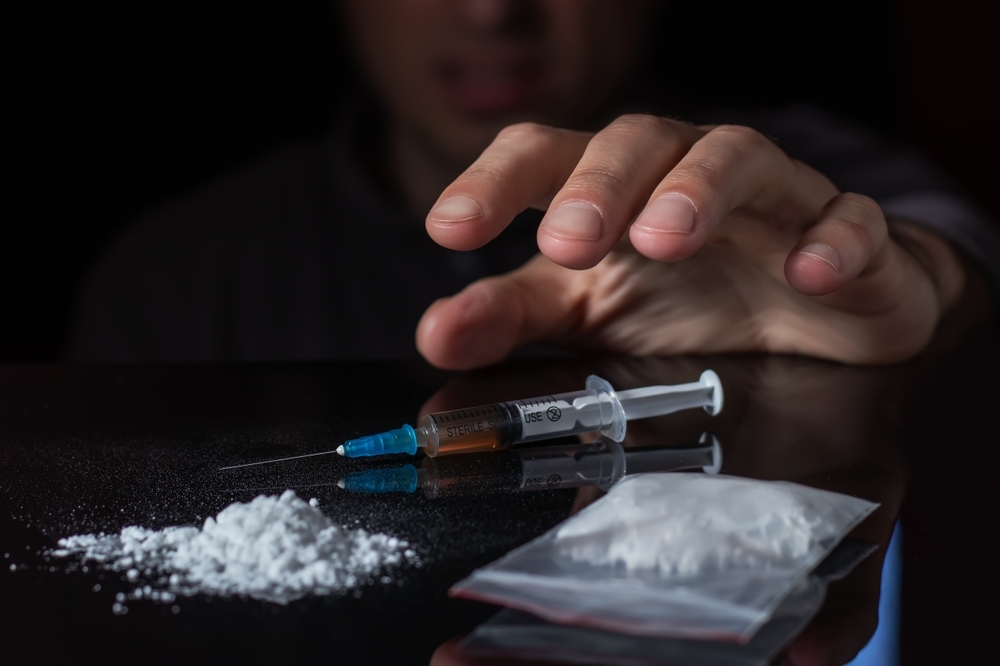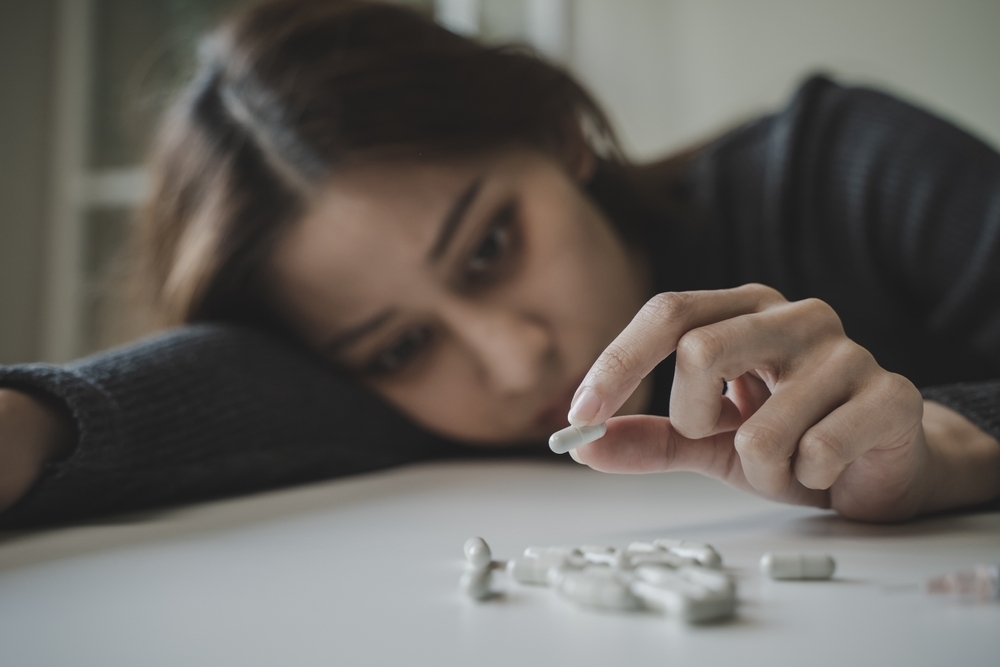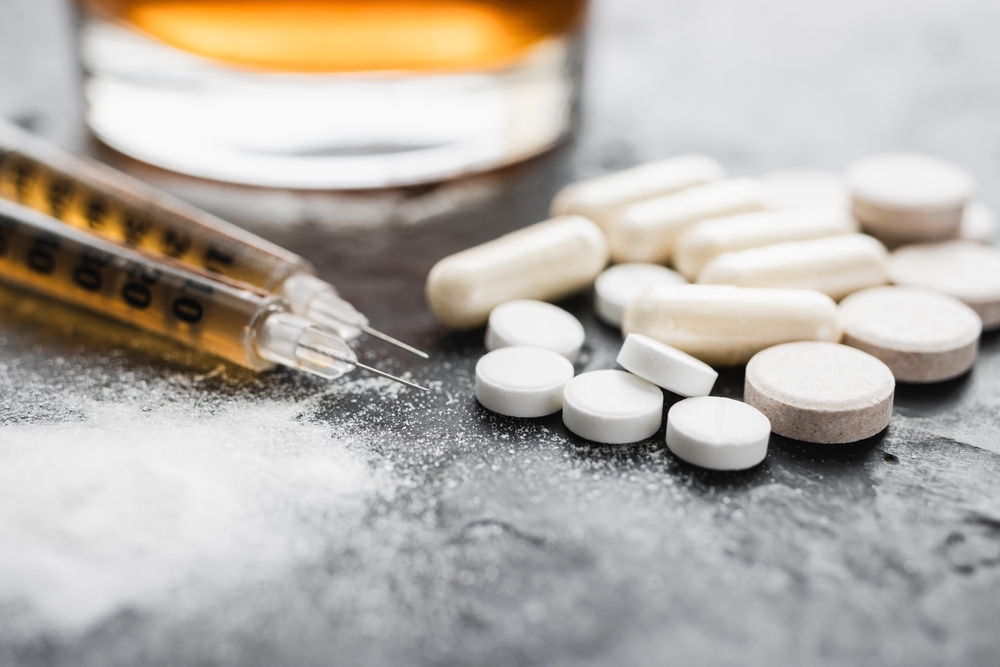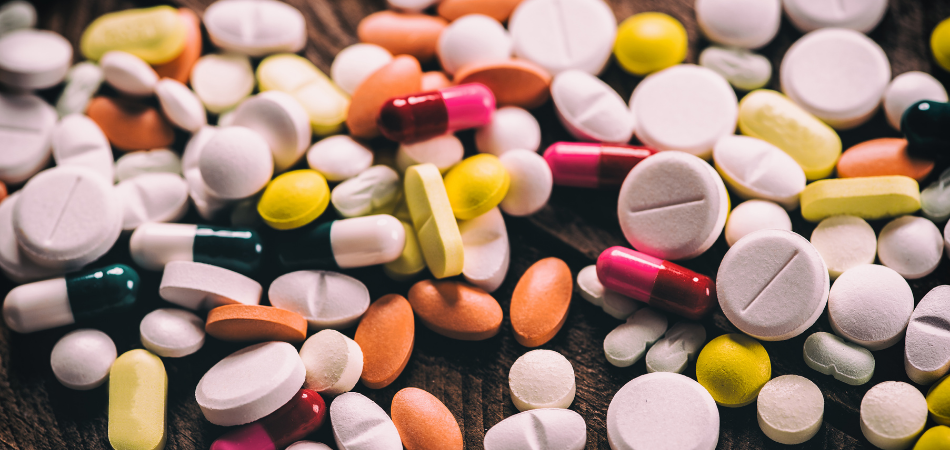
Written by:

Medically Reviewed by:
Last Updated:
June 4th, 2025
Drug Addiction | Types, Symptoms & Effects
- Select
- Drug addiction
- Drug detox
- Drug rehab
At first, drugs can seem like a bit of harmless fun or even help you through a difficult patch in your life. But drug abuse can quickly spiral, and before you have time to realise what’s going on, you are caught up in addiction. Drug addiction doesn’t always look like you might expect so the early warning signs are often brushed aside. That is why it’s so important to understand how drug addiction takes hold, what fuels it and how the right support at the right time can change everything.
What is drug addiction?
Drug addiction is a chronic, medically recognised condition where you lose all control over your drug use. A startling number of people in the UK are regular drug users with substances like cannabis, cocaine, ecstasy and methamphetamine all common on British streets and in British homes.
There is often a kind of “honeymoon period” where drug abuse feels manageable, and you are able to control when, where and how much you are taking. Eventually, however, drug addiction takes hold and you can’t stop or even cut down, even as you watch your health suffer and your life unravel.
- Between April 2023 and March 2024, a total of 310,863 adults were in contact with drug and alcohol treatment services in the UK, a 7% increase from the previous year (290,635).
- In 2023, there were 5,448 drug poisoning deaths registered in England and Wales.
- In 2023/24, there were 145,558 hospital admissions in England with a primary diagnosis related to drug misuse.
- A substantial number of individuals entering drug treatment programmes reported concurrent mental health and addiction needs.
- For the year ending March 2024, approximately 8.7% of adults aged 16 to 59 had used an illegal drug in the previous year.
Common drug addictions include:
Amphetamine addiction
While amphetamines may be perceived as harmless substances, the reality is that regular use can lead to addiction and result in cardiovascular problems, mental health issues, and an increased risk of severe psychological disorders. Click the button below to learn more about amphetamine addiction
Cannabis addiction
While cannabis (also referred to as marijuana) may be perceived as a harmless substance, the reality is that regular use can lead to addiction and result in respiratory problems, memory deficits and an increased risk of psychosis. Click the button below to learn more about cannabis addiction.
Cocaine addiction
Cocaine is one of the most widely-used illegal drugs. This powerful stimulant is highly physically and psychologically addictive with 840 deaths resulting from cocaine in the UK in 2021 (an all-time high). Click the button below if you would like to learn more about cocaine addiction and how to spot it.
Crack cocaine addiction
Crack cocaine addiction is a severe condition involving compulsive use despite harmful effects. It can lead to major cardiovascular and mental health issues, and a higher risk of psychological disorders. The addiction often causes significant personal and social consequences, making professional treatment essential.
Ecstasy addiction
Despite not being physically addictive, people can become dependent psychologically on ecstasy, or MDMA. Chronic use can have serious effects including structural changes in the brain, dental issues and damage to the liver, kidneys and cardiovascular system. Click the button below if you would like to learn more.
GBL addiction
GBL addiction involves compulsive use of gamma-butyrolactone despite severe consequences. It can cause serious health issues like respiratory depression, unconsciousness, and dependence. The addiction leads to significant personal and social problems, requiring professional treatment for effective recovery. Click the button to learn more.
GHB addiction
GHB addiction involves regular/compulsive use of gamma-hydroxybutyrate, which can lead to severe health issues such as respiratory depression, unconsciousness, and dependence. This addiction causes a range of significant personal and social problems. Click the button to learn more about GHB addiction.
Heroin addiction
This is an incredibly harmful form of drug addiction which sadly affects thousands of people in the UK. Heroin is extremely physically and psychologically addictive, can easily cause fatal overdose and produces intense withdrawal symptoms when users attempt to stop without support.
Meth addiction
Methamphetamine, also known as crystal meth, is a powerful stimulant drug that can lead to addiction with regular use and can cause a range of physical and psychological health issues such as heart problems, dental decay and depression. Click the button below to learn more about how meth addiction works.
Monkey dust addiction
Monkey dust addiction involves compulsive use of the synthetic drug, leading to severe health issues like paranoia, hallucinations, and violent behavior. This addiction results in significant personal and social problems, necessitating professional treatment for effective recovery and to prevent further harm. Click on the button below to learn more.
Steroid addiction
Steroid addiction involves compulsive use of anabolic steroids, leading to severe health issues like liver damage, heart problems, and hormonal imbalances. This addiction causes significant personal, physical, and social problems, making professional treatment essential for effective recovery. Click on the button below if you would like to learn more.
How does drug addiction develop?
The path into drug addiction often begins so slowly and imperceptibly that it can obscure the early signs and stages, making it easy to underestimate the seriousness of the situation.
Drug addiction often begins as recreational use, experimenting with your friends or taking the edge off after a bad day at work. At this stage, drug abuse seems harmless and completely manageable. However, what starts as sporadic can quickly become a regular part of your routine. You might find yourself using drugs every evening to relax or your weekend drug sessions escalating.
The more regularly you use drugs, the more your body gets used to them and soon, small amounts don’t do it anymore. This is what we call building tolerance. Once tolerance kicks in, it doesn’t take long for dependency to develop, which means drugs become more of a need than a want.
Stopping can then bring on tough withdrawal symptoms, things like feeling on edge, hurting physically or riding a rollercoaster of emotions. When it reaches this level, drugs become an emotional crutch, start to dominate your life, steer your choices and cause serious damage.
Drug addiction signs to look out for
The shift from occasional drug use to addiction can be subtle and easy to miss, especially if you’re managing to keep it hidden. However, recognising these symptoms of drug addiction can help you identify when it’s time to seek help:
- You’re constantly waiting for the next chance to use it.
- You’re keeping secrets or lying about your drug use.
- Drugs have become your go-to solution for dealing with stress and bad days.
- Withdrawal symptoms like restlessness, irritability or physical discomfort appear if you go too long without drugs.
- The amount of drugs you need to feel the same effects has grown.
- Drug use is negatively affecting your professional life and personal relationships.
- Attempts to reduce or stop your drug use have repeatedly failed.
- You persist in your drug use despite obvious adverse consequences.
If these signs resonate with you, don’t lose hope. Professional drug detox and rehab treatment can help you break out of the cycle.
What makes drugs addictive?
Drug addiction can take hold for various reasons, including the sheer variety and strength of drugs available today. Physically and chemically, the release of dopamine in drug addiction is often what keeps you initially using drugs because they feel good. But the path to drug addiction is also paved with various risk factors unique to each person:
What harm do drug abuse and addiction cause?
Drug addiction brings with it extensive damage to both health and personal well-being. But getting help for drug addiction early can help avoid these harms and repair any damage already done. Some of the biggest issues include:
- Neurological damage
- Respiratory health issues
- Cardiovascular risks
- Organ damage and failure
- Fatal drug overdose
- Mental health problems
- A risk of infectious diseases
- Legal and financial issues
- The breakdown of personal relationships
What does treatment for drug addiction involve?
At Linwood House, drug addiction treatment begins with the detox phase, which is all about helping your body rid itself of the substances in a safe environment and with expert medical care.
The heart of drug rehab treatment then lies in uncovering and addressing the ‘whys’ behind your drug use. Through a blend of therapy sessions, we will help you piece together the puzzle of your experiences and find new, sustainable ways to face life’s challenges without drugs.
After you have gained the tools and confidence needed to manage your life drug-free, we offer ongoing aftercare, outpatient group therapy and a fantastic Alumni Programme. All of this wraps around you like a safety net, ensuring you always have somewhere to turn.
Seek help for drug addiction today
If drug addiction has knocked you off course, Linwood House is here to help you find your way back. Contact us today to start the healing process with a team that cares deeply about your recovery. We offer comprehensive support from the moment you join us through every phase of your treatment, ensuring that sustainable recovery isn’t just a hope, but a reality.
Frequently asked questions
(Click here to see works cited)
- GOV.UK. “Adult substance misuse treatment statistics 2023 to 2024: report.” GOV.UK, 28 November 2024, https://www.gov.uk/government/statistics/substance-misuse-treatment-for-adults-statistics-2023-to-2024/adult-substance-misuse-treatment-statistics-2023-to-2024-report. Accessed 22 April 2025.
- Office for National Statistics. “ONS: Deaths related to drug poisoning in England and Wales: 2023 registrations.” Deaths related to drug poisoning in England and Wales – Office for National Statistics, 23 October 2024, https://www.ons.gov.uk/peoplepopulationandcommunity/birthsdeathsandmarriages/deaths/bulletins/deathsrelatedtodrugpoisoninginenglandandwales/2023registrations. Accessed 22 April 2025.
- UK Rehab. “Drug Addiction | Causes, Symptoms and Diagnosis.” UK Rehab, https://www.uk-rehab.com/drug-addiction/. Accessed 22 April 2025.








